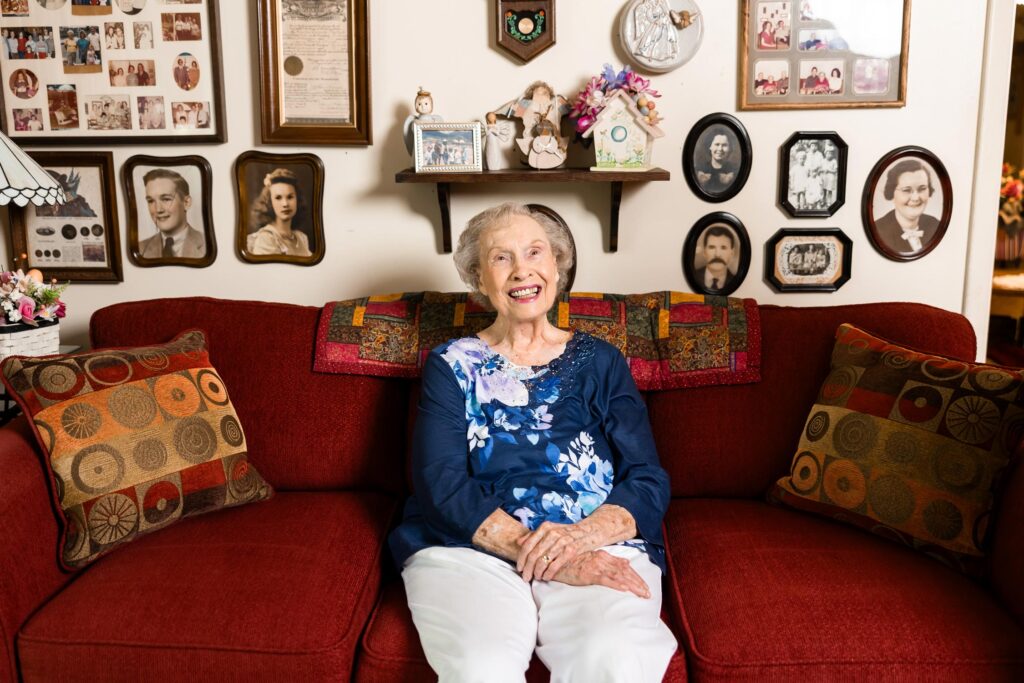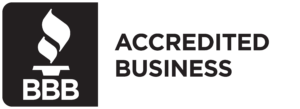Caring for aging loved ones can be overwhelming. Managing their health, finances, and safety makes it easy to overlook important details. A well-structured checklist for aging parents helps you stay organized, reduce stress, and provide the best care possible. Here, we’ll cover essential caregiving responsibilities, legal and financial planning, health monitoring, and more.
Key Takeaways
- Daily Care Tasks: Determine if parents can manage cooking, cleaning, and bathing. Use a checklist for aging parents to keep track of responsibilities.
- Health & Safety: Remove hazards, install grab bars, and set reminders for medication and hydration.
- Medical Management: Keep track of appointments, use pill organizers, and set up automatic prescription refills.
- Financial & Legal Planning: Ensure they have a will, power of attorney, and healthcare directives. Review income, expenses, and benefits.
- Long-Term Care: Research Medicare, Medicaid, and long-term care insurance for future needs.
- Safety at Home: Improve lighting, install emergency alert systems, and consider remote monitoring.
- Essential Conversations: Discuss finances, healthcare, living arrangements, and funeral preferences early.
- Document Organization: Securely store medical, legal, and financial records. Ensure trusted family members know where to find them.
- Caregiver Support: Utilize local agencies, caregiver checklists, and financial assistance programs.

Making a Checklist for Aging Parents
Caring for aging parents becomes more manageable with a clear plan. The most important responsibilities include tracking daily needs, ensuring health and safety, and managing medical care.
Identifying and Organizing Daily Caregiving Tasks
Everyday activities add up. First, assess if your parents can take care of themselves. For instance, are they able to cook, clean, and bathe independently? Additionally, do they remember meals and medications? If not, daily assistance might be necessary.
Moreover, a caregiving checklist keeps tasks in order. Specifically, include meal planning, household chores, and transportation needs. Furthermore, consider delivery services, home care aides, or community programs. If you have siblings, sharing responsibilities can lighten the load.
Ensuring Senior Parents’ Health and Safety
Health and safety go beyond doctor visits. To begin with, start by checking the home for risks such as slippery floors, poor lighting, and loose rugs. Additionally, install grab bars in the bathroom and confirm that furniture is stable. A senior home safety checklist can help eliminate potential hazards.
Furthermore, seniors may forget to eat, stay hydrated, or take medications. Therefore, set reminders for meals and water intake. If mobility is a concern, provide a walker or cane. Moreover, for memory-related issues, consider a personal alarm or GPS tracker.
Coordinating Medical Appointments and Medication Management
Health needs become more complicated with age. Therefore, regular check-ups are essential. To keep track of all medical appointments and medications, consider using a shared medical calendar if your parent sees multiple doctors; this helps coordinate care effectively.
Moreover, taking multiple medications can be confusing. Thus, use a pill organizer or automatic pill dispenser to maintain consistency. Additionally, a pharmacist may be able to set up refills to occur on the same schedule.
For additional support, caregiver programs provide assistance and expert advice. Family caregiver support services connect families with professionals who can help manage caregiving challenges.
Creating A Checklist of the Financial and Legal Needs of Aging Parents
Essential Legal Documents Every Aging Parent Should Have
Every aging parent should have a will, power of attorney (POA), and an advance healthcare directive.
- A will ensures that assets go to the intended beneficiaries.
- A POA allows a trusted individual to handle financial matters if needed.
- An advance directive outlines medical preferences in case they cannot communicate their wishes.
Missing these documents can lead to legal complications. Collect and store important records such as birth certificates, marriage licenses, Social Security cards, insurance policies, and property deeds. Keep copies in a secure place and inform trusted family members of their location.
How to Manage Finances Effectively for Senior Family Members
Review income, savings, debts, and expenses. Confirm whether your parents receive Social Security, pensions, or veteran benefits. Check eligibility for Medicaid, Medicare, or financial assistance programs.
Setting up automatic bill payments can prevent missed deadlines. If managing money becomes difficult, a trusted family member or financial advisor can help. Adding an authorized user to bank accounts simplifies transactions but requires complete trust.
Planning for Long-Term Care and End-of-Life Arrangements
Long-term care is costly, and Medicare does not cover extended care services. Explore long-term care insurance early before it becomes unaffordable. Medicaid may cover some expenses, but strict financial criteria apply.
Discuss living arrangements—whether aging at home, moving in with family, or choosing assisted living. If they decide to stay at home, modifications like grab bars and better lighting may be necessary. On the other hand, if a facility is considered, research costs, locations, and financial options should be considered ahead of time.
End-of-life planning ensures that final wishes are respected. Ask about preferences for funerals, burial plans, and medical interventions. Having these discussions now prevents confusion later.
Key Health Monitoring Tools for Seniors
Choosing the Right Medical Alert Systems and Monitoring Devices
Medical alert systems provide a safety net. Some devices include fall detection, automatically contacting emergency services when needed. GPS trackers aid those with memory issues, while smartwatches with heart rate monitoring offer extra security. Video monitoring allows discreet check-ins.
Best Practices for Elderly Medication Management
Managing medications effectively prevents missed doses. Pill organizers help track schedules, while smart dispensers send reminders and notify caregivers of skipped doses. Setting up automatic prescription refills ensures uninterrupted medication access. Keep an updated medication list with names, dosages, and any side effects.
Routine Health Checkups and Assessments for Aging Parents
Regular checkups catch health problems early. Seniors should schedule annual physical exams, blood pressure checks, and vision tests. Dental and hearing care remain important, as well as screenings for osteoporosis. Those with chronic conditions like diabetes should monitor symptoms closely.
Keeping Your Loved Ones Safe At Home
Senior Home Safety Checklist for Aging Parents: Important Modifications for Aging in Place
A safer home significantly reduces accidents. Therefore, start by removing loose rugs, securing electrical cords, and improving lighting. Additionally, install grab bars in bathrooms and railings on stairs. By rearranging furniture, you can create clear paths; moreover, stair lifts may help those with mobility issues.
Furthermore, ensure that smoke detectors work properly and keep emergency contacts nearby at all times. A senior home safety checklist covers potential hazards.
Preventing Falls and Reducing Injury Risks in the Home
Falls cause serious injuries. Placing non-slip mats in high-risk areas, minimizing clutter, and using nightlights improve safety. Supportive furniture and proper-fitting shoes help with stability. Encourage light exercise to maintain strength and balance.
Technology provides peace of mind. For instance, medical alert systems with fall detection ensure quick emergency response. Additionally, cameras and smart home devices allow unobtrusive monitoring. Moreover, GPS trackers help locate wandering parents. Furthermore, video calling devices help families stay connected.
Crucial Conversations to Have With Aging Parents
Discuss finances, medical care, and living arrangements early. First, start by reviewing savings, income, and expenses. Additionally, ensure legal documents like wills and healthcare directives are in place.
Next, talk about medical preferences and ongoing health concerns. Knowing a parent's treatment preferences prevents difficult decisions later.
Furthermore, discuss future living arrangements. Can they live safely at home? Would assisted living be an option?
End-of-life discussions may be difficult, but they ensure that wishes are clear. Conversations about burial, cremation, and funeral planning help avoid uncertainty.
Finally, family meetings encourage open discussion. If tensions arise, a mediator or counselor can facilitate the conversation.
Organizing Important Documents for Elderly Parents
Gather medical, legal, and financial records in one place. Missing paperwork can delay care or financial decisions.
Checklist of Medical, Legal, and Financial Documents Seniors Need
Medical records should include doctor contacts, medication lists, and chronic condition details. Additionally, legal documents like wills, power of attorney, and healthcare directives ensure that decisions align with their wishes. Furthermore, financial records—such as bank statements, property deeds, and insurance policies—clarify assets and obligations.
Securely Storing and Accessing Vital Records
Keep originals in a fireproof safe. Additionally, share digital copies with trusted family members using secure cloud storage.
Essential Estate Planning Steps to Take in Advance
Regularly review legal documents with an attorney. Organizing paperwork ensures smooth asset distribution and honors final wishes.
Resources Available for Caregivers
Local agencies, online tools, and financial aid can provide relief for family caregivers.
- Eldercare Locator connects families with local services.
- Downloadable caregiver checklists from AARP and the Family Caregiver Alliance help with organization.
- Programs like Medicaid, SSI, and FMLA offer financial assistance.
Support systems exist to help both caregivers and aging parents. Seeking help ensures everyone gets the care they need.
A Checklist for Aging Parents – Ensure Their Well-Being
As your parents age, their needs change. Our aging parents checklist helps you navigate important areas like home safety, healthcare, and daily living support. Don't wait until challenges arise—start planning today. Reach out to CareLink for expert guidance on senior care.





